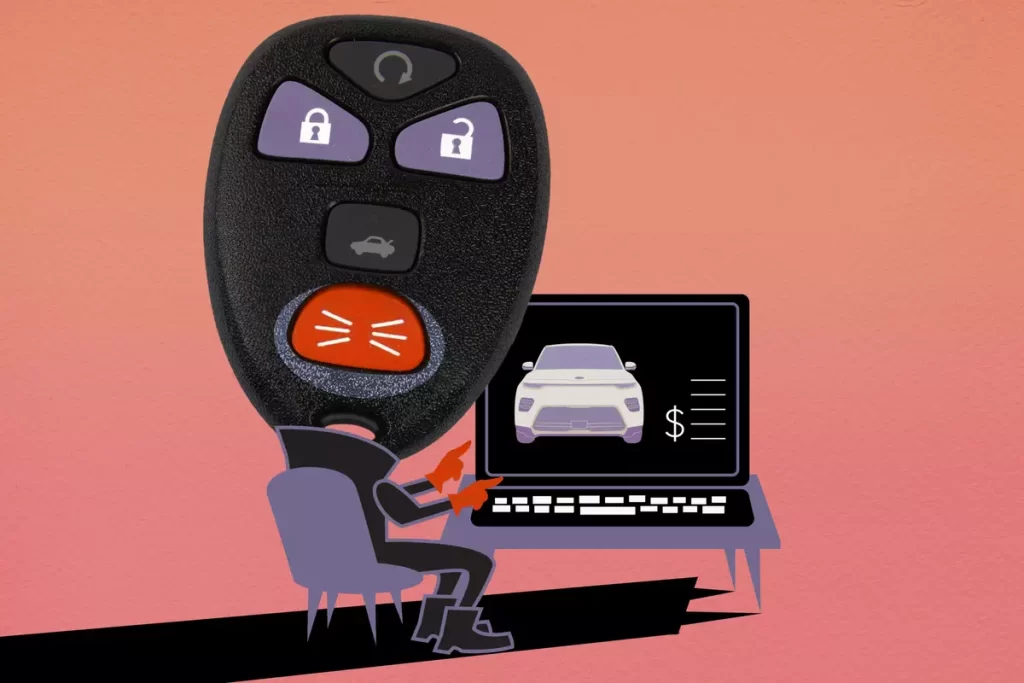How to Protect Yourself from Car Buying Scams
Introduction
Purchasing a car can be an exciting milestone, but it also presents opportunities for scammers to take advantage of unsuspecting buyers. Car buying scams can range from fake online listings and misleading financing deals to title washing and identity theft. This blog will guide you on how to identify and avoid these scams so you can safely purchase your next vehicle.
Common Car Buying Scams
Fake Online Listings
- Scammers post fake advertisements for vehicles on popular websites, often at attractive prices. When you inquire, they may claim the car is unavailable for an in-person inspection and request a deposit to “hold” the vehicle or use fake escrow services.
- How to Spot It: Be cautious if the price seems too good to be true or if the seller refuses to meet in person.
Odometer Fraud
- Scammers tamper with the odometer to reduce the displayed mileage, making the car appear less used than it actually is.
- How to Spot It: Look for inconsistencies in the vehicle’s service records, check the car’s wear and tear (e.g., pedals, seats), and consider using a professional inspection service.
Title Washing
- A vehicle with a salvage or rebuilt title may have been damaged in a flood, crash, or other events. Scammers may alter the title history to hide this information.
- How to Spot It: Use services like Carfax or AutoCheck to verify the vehicle’s history, and check with your local DMV for any discrepancies.
Misleading Financing Deals
- Fraudulent dealerships or individuals may offer financing terms that seem favorable but contain hidden fees, inflated interest rates, or undisclosed add-ons.
- How to Spot It: Carefully read all documents and terms before signing. Ask questions and refuse to sign anything you don’t understand.
Identity Theft During Purchase
- Scammers posing as dealers or private sellers may ask for personal information such as your Social Security Number, bank details, or other sensitive information to “process” your purchase.
- How to Spot It: Be cautious about sharing sensitive data and only work with reputable sellers.
Red Flags to Watch For
- Prices that are significantly lower than market value.
- Sellers who insist on handling all communication online and refuse to meet in person.
- Requests for payment through unusual methods, such as wire transfers or gift cards.
- Inconsistent or missing vehicle history reports.
- Pressure tactics to close the sale quickly.
How to Protect Yourself
- Research the Seller: If you’re buying from a private party, verify their identity. If it’s a dealership, check reviews, ratings, and accreditation.
- Inspect the Vehicle in Person: Arrange to see and test drive the car before committing to any purchase.
- Obtain a Vehicle History Report: Use services like Carfax or AutoCheck to check the car’s history, including previous ownership, accidents, and title status.
- Get a Pre-Purchase Inspection: Have the vehicle examined by a trusted mechanic to uncover potential issues.
- Avoid Unusual Payment Methods: Pay through secure and verifiable methods such as certified checks or through reputable escrow services.
- Read All Documents Thoroughly: Before signing any contract, understand all terms, conditions, and fees.
What to Do If You’re a Victim
- Report the Scam to Local Authorities: File a report with your local police department.
- Contact the FTC and the Internet Crime Complaint Center (IC3): Report online scams to www.ftc.gov and www.ic3.gov.
- Dispute Fraudulent Charges: If money was transferred, contact your bank or financial institution to dispute the charge and potentially recover funds.
- Check Your Credit Report: If you suspect identity theft, place a fraud alert on your credit report with one of the major credit bureaus (Equifax, Experian, TransUnion).
Conclusion
Car buying scams can cause significant financial losses and headaches, but by staying vigilant, doing thorough research, and following best practices, you can protect yourself. Take the time to investigate every aspect of a vehicle purchase, work with reputable sellers, and never let yourself be rushed. Safe and smart buying ensures a better car-buying experience.







